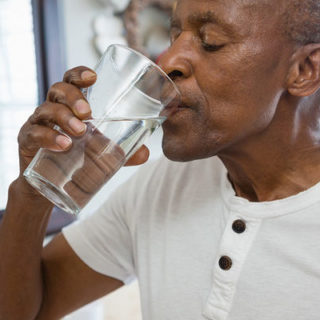Medicine Cabinet Essentials: The Definitive Checklist for Staying Fully Stocked
If you’re looking for a list of medicine cabinet essentials, you’ve come to the right place. Having the right medications and medical supplies on hand can make a world of difference when you’re in need! Whether you’re cleaning your bathroom, tossing old drugs, or sending your child off to fend for themselves, this guide will help you understand the essentials of a well-stocked medicine cabinet.
Medications You’ll Need
It’s important to have the basics on hand, in case you have a headache or a sudden onset of allergies.
- Your prescription medications
- Pain and fever relievers, like acetaminophen, ibuprofen, naproxen, or aspirin (Remember: Don’t give aspirin to children under 12.)
- Allergy medication, including nondrowsy varieties and allergy eye drops
- Regular eye drops
- For itchy skin or allergic reactions, calamine lotion, an antihistamine cream or spray, or hydrocortisone
- Ointments for cuts and burns, like antibiotic cream, hydrocortisone cream, and aloe vera gel
- Decongestants and cough drops for cold or flu symptoms
- Activated charcoal for accidental poisoning
- Medicine for an upset stomach, such as calcium carbonate for heartburn; antacids for indigestion; or other antidiarrheals (If you sometimes get acid reflux, then keeping cimeditine, omeprazole, esomeprazole, or similar medicines handy can be a good idea.)
- If bladder infections are a problem, phenazopyridine (It helps relieve pain until you see a doctor.)
Supplies to Keep on Hand
Medicine isn’t enough. Here are some other supplies you’ll want to be able to get your hands on fast.
- Adhesive bandages, gauze bandages
- Cotton balls and Q-tips
- Alcohol and hydrogen peroxide
- Soap
- Thermometer (For quicker results, look for digital thermometers or the kind you put on your forehead or in your ear.)
- Tweezers, for tick or splinter removal
- Safety pins and scissors
- Medical exam gloves
- Nail clippers
- Pill cutter
- Eyeglass repair kit, if you wear glasses, and contact lens cleaner, if you wear contacts
- Everyday dental basics, like a toothbrush, toothpaste, mouthwash, and floss
If you have a baby, you might want to add the following:
- Diaper rash medicine and diaper cream
- Baby nail clippers
- Baby-safe thermometer
- Bulb suction and saline drops (Remember to read the directions carefully)
- Teething gel
Other Tips and Tricks
Keep an inventory of your medication’s expiration dates. Whenever you get a new prescription, add its expiration (or last day to call in a refill) to the inventory. You’ll also want to do this for over-the-counter medications; it can be easy to forget these medicines expire.
If your medicine cabinet is big enough, consider keeping insect repellent there too. Otherwise, store insect repellent and sunscreen near your front and back doors, so you can apply it right before you leave. Also, consider a daily moisturizer that doubles as sunscreen.
If there are elderly people in your home, you’ll want to make sure all your medicine is safe for them and note what isn’t. For example, some allergy medications’ side effects may be unhealthy for the elderly. If you have children or a baby in the house, make sure your medicine is out of reach and in child-proof containers. You’ll also want medicines designed specifically for children, like children-strength decongestant and cough syrup.
So there you have it — your medicine cabinet essentials, down to the last tube and tweezer. Keep all your medicine in its original packaging, so you don’t lose important information about directions and side effects. If a problem persists or you develop a high fever, make sure you see a doctor.


